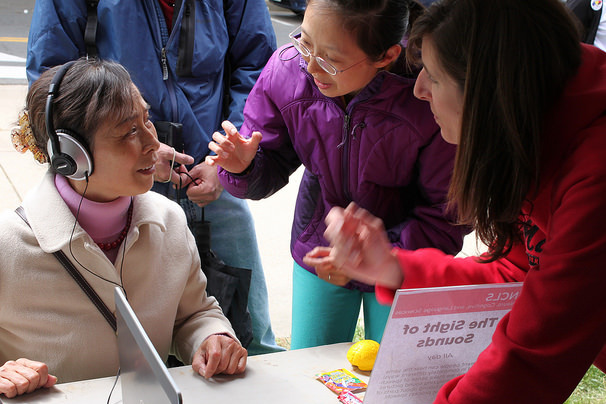What We've Learned: Five Years’ Progress in Two Minutes
December 12, 2013
Maryland Language Science Center

The Language Science IGERT Program (2008-2015) is the University of Maryland’s only award through the National Science Foundation’s flagship interdisciplinary graduate training program . NSF’s $3M investment served as a catalyst for the broader language science initiative at UMD and was recently institutionalized as the Maryland Language Science Center . The student training component is currently being developed as the Maryland Language Science Center Fellows program which is scheduled to accept its first applications in Spring 2014. In the first five years of the program we learned a lot about interdisciplinary training. Some things were expected, some were surprises. Here’s a brief summary. If you want to see more, check out the program’s document depository The IGERT program’s were to create: a model of interdisciplinary student traininga broader language science communitysustainability and institutionalizationlocal and national impact We have learned several among which the following are the most important: the biggest impact is created by student ownership of program activitiesinterdisciplinary training requires much more than broad coursework and exposure to diverse ideas and skillstraining should prepare for lifelong adaptabilitytraining should prepare entrepreneurial scientistsstudents change fastest, new faculty next, established faculty slowestregular formative assessment really worksculture change can happen, but not overnight 50 students, drawn from 10 departments and programs, pursued the full program and 30+ other PhD students benefited from it. 50 faculty members contributed as mentors, course instructors, workshop leaders, research team leaders, or rotation supervisors. 12 new language science faculty were hired since 2008 and the interdisciplinary community played a key role in recruiting them. Our students from the 2008 and 2009 cohorts have graduated and 4 of them have been offered tenure track positions. Other students received postdocs at Harvard, Illinois, Haskins/Yale, UC San Diego, McGill, Paris, San Sebastian, CASL, UMD. The program’s goals have been achieved through a vast array of which ranged from excellent interdisciplinary courses to year-round outreach activities or leadership developing activities. Below is only a very brief listing of these: INTERDISCIPLINARY COURSES 12 interdisciplinary seminars 2009-13 Courses regularly take students outside of their ‘comfort zone’ Students take on average 15 courses; 5 outside of their home department STUDENT LEADERSHIP COMMITTEES Students took over program leadership and ownership in 2009 5 very active committees run activities OUTREACH PROGRAM Many annual events benefiting hundreds of K-12 students and community members Excellent benefit to student training Building networks of professionals RESEARCH ROTATIONS Integrated research opportunities for advanced students Many success stories with publications outside of main research area WINTER STORM (5x) Yearly intensive 2-week workshop with: Research planning workshops Student-led technical courses Daily faculty lunch talks Professional development workshops ‘Science is social’ events INDIVIDUAL TRAINING & MENTORING Student ‘apprentices’ develop detailed research proposal in Year 1 Self assessment report and feedback ensure excellent academic progress YEAR-ROUND ACTIVITIES Weekly student lunch talks to interdisciplinary audience Student research groups emerged from Winter Storm LANGUAGE SCIENCE DAY Annual celebration of language science at the University of Maryland Showcase of research activities collaborative opportunities Present student training possibilities Interdisciplinary connections 175 participants in 2012; 230 in 2013 For more information about the program visit the Maryland Language Science Center or the IGERT program ‘s page.



